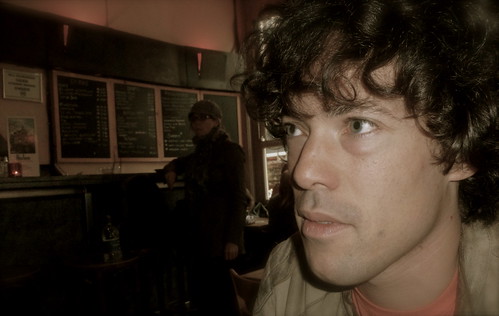I’m in Amsterdam a few days early to prepare for the upcoming Rhythm Changes conference. One of the first events of the conference is a performance by Tin Men and the Telephone.
Bandleader Tony Roe is a PhD student who is researching the relationship between technology and improvised jazz music performance, so we thought it would be a good idea to spend a bit of time with him this week and learn a little bit about his research and his approach to the music.
I met him in a cafe in Harlemmerstraat and asked him to introduce himself…





